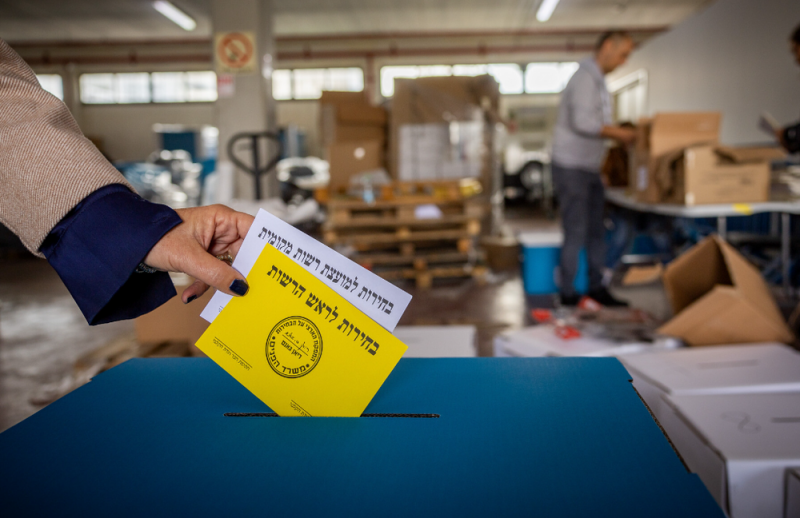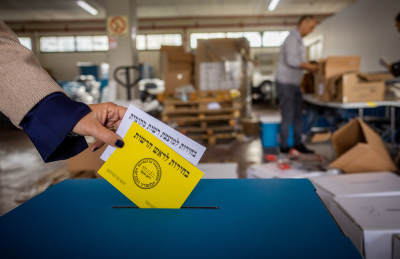Israel held local elections today, Tuesday, despite its ongoing war in Gaza, with tens of thousands of voters from areas near the Palestinian territory and the northern border with Lebanon awaiting to cast their ballots later in the year. While voters are casting their votes today in 242 municipalities, the decision to postpone voting in 11 areas close to the combat lines is a tangible example of the war's impact on Israel, which has witnessed one of the largest security disasters in its 75-year history. Life has largely returned to normal in major cities like Tel Aviv after the Hamas attack, but the nearly five-month-long war in Gaza and the near-daily exchange of rocket fire in the north have left many border areas nearly deserted.
Yara Maimon, 24, in Sderot, a southern town on the outskirts of Gaza where dozens were killed during the Hamas attack and elections were postponed until November, stated, "It might be a smart decision to postpone the elections to a later time when people are less scared to return home." She added, "If you walk around the city, you still see destroyed places, rocket strikes, and things like that, so people might be afraid to come back."
In the north, where towns and communities near the border are largely empty, the Israeli army reported hitting targets belonging to the Lebanese Hezbollah group in southern Lebanon today after around 35 rockets were launched from Lebanon towards the Meron area.
Voting had already been postponed beyond the originally scheduled date of October 31 and then pushed back again to January due to the fighting. However, with the war entering its sixth month next week, the government decided to move forward with the elections. Israeli President Isaac Herzog stated, "In war, in a state of emergency, we see municipalities, authorities, and local councils facing many challenges, and nothing is more important than that, so I urge the citizens of Israel to go out and vote."
Support for Prime Minister Benjamin Netanyahu's right-wing government has declined due to failures that allowed the devastating attack led by Hamas to catch security forces off guard. However, polling indicates that general support for the war itself remains strong among Israelis who fear that the Islamic movement will repeat the attack if it is not eliminated. Israel has evacuated about 200,000 people from its border areas, but after months of staying in hotels and other temporary accommodations, these residents are increasingly feeling exhausted and are pressing to return to their normal lives.
Israeli forces are preparing to launch an attack on Rafah in southern Gaza, where more than a million displaced Palestinians have sought refuge. Hopes for a ceasefire renewed today when U.S. President Joe Biden indicated that an agreement might be reached next week before the start of Ramadan. However, fighting is escalating in northern Israel, with Defense Minister Yoav Gallant stating on Sunday that forces would intensify their operations there if a temporary ceasefire agreement in Gaza is reached.




